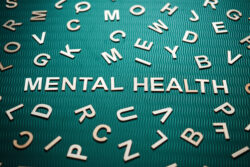What Does Depression Look Like in Women?

Depression does not discriminate, men, women, teens and children of all backgrounds can experience symptoms of depression at any time in any place. It stands to reason, however, that each of these groups experience depression differently based on their realities, backgrounds and immediate environments.
For example, adults might be more capable of processing their depression symptoms than children. While women might show certain signs of depression that men are not as likely to display.
At all times, it is helpful to understand the general signs of depression so you can proactively recognize it in yourself, or have an educated conversation about it with someone else. We want to take the time here to go further into depth about the more common signs of depression women are likely to display.
Common signs of depression in women
It is not rare for a woman to develop depression or have at least one episode of depression in her lifetime. In fact, women are twice as likely as men to struggle with depression. As those who battle depression know, it’s not something you can just snap out of, nor is it simply feeling sad all the time.
Depression is a real mental illness where lack of motivation, fatigue and overwhelming emotions constantly get in the way of everyday life. It leaves the individual struggling with the most routine parts of the day, like getting out of bed in the morning or going to work. For women, it may last longer, come back more frequently and be connected to stress more often than men.
Additional signs of depression to look for in yourself, or in a loved one include:
- Chronic feelings of sadness or hopelessness;
- Difficulty concentrating or remembering;
- Thoughts of death or suicide — women are, however, less likely than men to commit suicide, even though experiencing suicidal thoughts;
- Physical aches and pains that don’t lessen even with medical intervention;
- Irregular sleeping patterns;
- Changes in eating habits;
- Feelings of worthlessness and guilt, where a woman is very hard on herself for mistakes made, blaming herself more than others;
- Withdrawing from family and friends, no longer partaking in social events and losing interest in previously enjoyed activities and hobbies;
- Feeling lonely, empty and isolated;
- Fear and anxiety.
If any of these symptoms present themselves frequently, persistently or in combination, it’s important to reach out for help proactively.
Types of depression unique to only women
Interestingly, before puberty, the rate of depression in boys and girls is the same, but post puberty, the likelihood of a female being diagnosed with depression doubles.
Researchers suggest this is likely due to the level of hormones fluctuating in a woman’s body throughout her life, specifically during — puberty, pregnancy, postpartum, miscarriage, menopause and monthly menstrual cycles. As hormone levels change, it has a direct impact on the woman’s mood to such an extent that women may struggle with depression specific to that period of time.
Postpartum depression
Feeling irritable and sad and crying easily is common amongst women who just gave birth, and these symptoms tend to go away about two weeks following the baby’s arrival. However, for those who continue to experience symptoms, they may be battling postpartum depression.
These signs include:
- Mom guilt, or feeling like you’re a bad or inadequate mother;
- Inability to sleep even when the baby sleeps;
- Thoughts of harming yourself;
- Thoughts of harming the baby;
- Frequent crying or simply feeling numb;
- Inability to care for the baby.
It’s important to contact your doctor right away if you experience these symptoms in order to best get the care you need so you can, in turn, give your newborn the best care.
Premenstrual dysphoric disorder (PMDD)
Women affected by PMDD experience symptoms like:
- Severe mood swings, anger and irritability;
- Depression and anxiety;
- Physical pain throughout the body;
- Appetite changes;
- An inability to carry out daily tasks.
PMDD is likely to affect a woman in the days leading up to the start of her menstrual cycle, but it is much more aggressive and debilitating than PMS, and typically requires the help of a medical doctor to diagnose and treat.
Perimenopause depression
Perimenopause, the stage of transitioning into menopause, is normally characterized by hot flashes, trouble sleeping, irregular cycles and mood swings, but the addition of depressive symptoms can indicate a problem. While certain symptoms of menopause are normal, depressive symptoms are not.
If you experience — the loss of enjoyment from social events or hobbies, anger and irritability, overwhelming sadness or anxiety — consider talking with your doctor or counselor about the possibility of perimenopausal depression, and the appropriate steps needed to treat it effectively.
Recovery is possible
While it might feel like it during the midst of it, depression is not the narrative of your life. While it is debilitating at times, and overwhelming to deal with, treatment for depression is not only available, it is effective.
If you’re ready to get a handle on depression and begin living your life to the fullest, reach out to the counselors at Pyramid Healthcare today by calling 888-694-9996.







